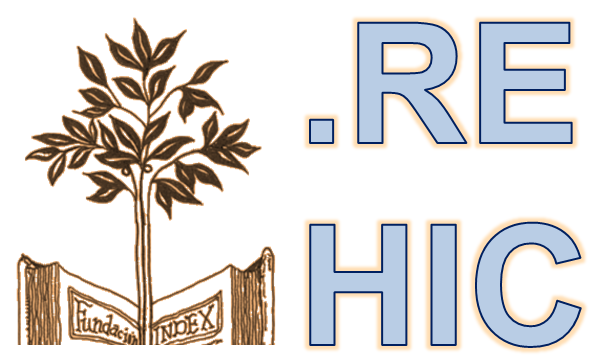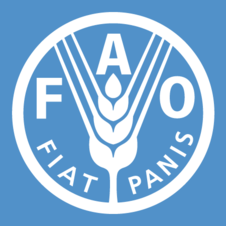NUTRIENTES ANTIOXIDANTES COMO AGENTES PREVENTIVOS DE CÁNCER, UNA REVISIÓN
Resumen
La producción de radicales libres (RL) aunado a la formación de especies reactivas de oxígeno (ERO) son parte inherente al metabolismo, procesos además necesarios para el mantenimiento de funciones vitales. Sin embargo el desequilibrio entre la producción de ERO y el estado antioxidante de una célula intacta provoca estrés oxidativo (EO). El daño endógeno al ADN es la principal causante de la vejez y de enfermedades degenerativas tales como el cáncer. Una vez que la célula esta iniciada, progresa y se convierte en maligna, presenta un crecimiento incontrolado que caracteriza a las neoplasias. El ataque de ERO causan oxidación, siendo el mayor factor de riesgo en el proceso de carcinogénesis. El efecto de los nutrientes antioxidantes ha sido evaluado en las 3 etapas del cáncer, iniciación, promoción y progresión, en trabajos de revisión se evidencia la eficacia de la vitamina C, E y el B- caroteno en el proceso de carcinogénesis en donde se señala que estos nutrientes tienen función en la eliminación de carcinógenos, inhibición de pre carcinógenos y la reparación del daño al ADN. Esto ha ocasionado el uso de múltiples nutrientes antioxidantes como agentes preventivo, se han utilizado de forma aislada o en combinación, durante tiempos cortos e incluso suplementación a largo plazo. Pese a tantas investigaciones sobre el tema no es claro el efecto específico del uso de antioxidantes, ni se han establecido dosis efectivas para prevenir un proceso de iniciación de cáncer por grupos de edad.
Palabras clave: nutrición, antioxidantes, cáncer
nutrition, antioxidants, cancer
Descargas
Citas
Gutteridge, JMC.1993. Free radical in disease processes: a compilation of cause and consequence. Free
Radic Res Commun. 19:141-158.
Borek, C. 1991. Free radical proceses in multistage carcinogenesis. Free Radic Res Comm. 12:745-750.
Valko, M, M Izakovic, M Mazur, CJ Rhodes and J Telser. 2004. Role of Oxigen radicals in DNA damage and
cancer incidence. Mol Cell Biochem. 266:37-56.
Storz, P. 2005. Reactive oxygen species in tumor progression. Front Biosci. 10:1881-1896.
McEligot, AJ, S Yang and FL Meyskens Jr. 2005. Redox regulation by intrinsic species and extrinsic nutrients in normal and cancer cells. Annu Rev Nutr. 25:261-295.
Borek, C. 2004. Dietary antioxidants and human cancer. Integr Cancer Ther. 3:333-341.
Dreosti, IE. 1998. Nutrition, cancer, and aging. Ann Y Acad Sci. 854:371-377.
Trueba, GP, GM Sanchez and A Giuliani 2004. Oxygen free radical and antioxidant defense mechanism in cancer. Front Biosci. 9:2029-2044.
Marnett, LJ. 2000. Oxyradicals and DNA damage. Carcinogenesis. 21:361-370
Cerutti, PA. 1985. Prooxidant states and tumor promotion. Science. 227:375-381
D´Souza, RJ, EM Phillips, PW Jones, RC Strange and GM Aber. 1993. Interactions of hydrogen peroxide with interleukin-6 and platelet-derived growth factor in determining mesangial cell growth: effect of repeated oxidant stress. Clin Sci. 86:747-751.
Müller, JM, MA Cahill, RA Rupee, PA Baeuerle and A Nordheim 1997. Antioxidants as well as oxidants activate c-fos via Ras-dependent activation of extracellular-signal-regulated kinase 2 and Elk-1. Eur J Biochem. 244:45-52.
Chinenov, Y and TK Kerppola. 2001. Close encounters of many kinds: Fos-Jun interaction that mediate transcription regulatory specificity. Oncogene. 20:2438-2452.
Szatrowski, TP and CF Nathan 1991. Production of large amounts of hydrogen peroxide by human tumor cells. Cancer Res. 51:794-798.
Toyokuni S, K Okamoto, J Yodoi and H Hiai 1995. Persistent oxidative stress in cancer. FEBS Lett. 358:1- 3.
Tannenbaum, A and H Silverstone 1953. Nutrition in relation to cancer. Adv Cancer Res.1:451-501.
Carroll, KK. 1975. Experimental evidence of dietary factors and hormone-dependent cancers. Cancer Res. 35:3374-3383
Howe GR, T Hirohata, TG Hislop, JM Iscovich, JM Yuan and K Katsouyanni 1990. Dietary factors and risk of breast cancer: combined analysis of 12 case-control studies. J Natl Cancer Inst. 82:561-569.
De Luca, L, N Maestri, F Bonanni and D Nelson 1972. Maintenance of epithelial cell differentiation: The mode of action of vitamin A. Cancer. 30:1326-1331.
Bjelke, E. 1975. Dietary vitamin A and human lung cancer. Int J Cancer.15:561-565.
Moon, RC. Comparative aspects of carotenoids and retinoids as chemopreventive agents for cancer. J Nutr 1989;119:127-134.
Peto, R, R Doll, JD Buckley and MB Sporn 1981. Can dietary beta-carotene materially reduce human cancer rates?. Nature. 290:201-208.
Shekelle, RB, M Lepper and S Liu 1981. Dietary vitamin A and risk of cancer in the western electric study. Lancet. 2:1186-1190.
Wang, LD and EC Hammond 1985. Lung cancer, fruit, green salad and vitamin pills. Chin Med J. 3:206-210.
Gerster, H. 1995. Beta- caroteno, vitamin E and vitamin C in different stages of experimental carcinogenesis. Eur J Clin Nutr. 49:155-168.
Burton, GW 1989. Antioxidant actions of carotenoids. J Nutr.119:109-111.
Borek, C. 2004. Dietary antioxidants and Human Cancer. Integr Cancer Ther. 3:333-341.
Beyer, RE.1994. The role of ascorbate in antioxidant protection of biomembranes: Interaction with vitamin E and coenzyme Q. J Bioenergetics and Biomembranes 26:349-358.
Schwartz, J, G Shklar and D Trickler 1993. p53 in the anticancer mechanism of vitamin E. Eur J Cancer B Oral Oncol 29B:313-318.
Shwartz, JL, RP Singh, B Teicher, JE Wright, DH Trites and G Shklar 1990. Induction of a 70 KD protein asociated with the selective cytotoxicity of beta-caroteno in human epidermal carcinoma. Biochem Biophys Res Commun 169:941-946.
Block, G, B Patterson and A. Subar 1992. Fruit, vegetables and cancer prevention: a review of the epidemiologic evidence. Nutr Cancer 18:1-29.
Wattenberg, LW 1992. Inhibition of carcinogenesis by minor dietary constituents. Cancer Res 52:2085S- 2091S.
Greenberg, ER, JA Baron, TA Stukel, MM Stevens, JS Mandel and SK Spencer SK. 1990 A clinical trial of beta carotene to prevent basal-cell and squamous-cell cancers of the skin, The skin cancer prevention study group. N Engl J Med 323:789-795.
Blot, WJ, JY Li, PR Taylor, W Guo, S Dawsey and GQ Wang 1993. Nutrition intervention trials in Linxian, China: Suplementation with specific vitamin/mineral combinations, cancer incidence, disease specific mortality in general population. J Natl Cancer Inst 85:1483-1491.
The alpha-tocopherol beta carotene cancer prevention study group 1994. The effect of vitamin E and beta carotene on the incidence of lung cancer and other cancers in male smokers. New Engl J Med 330:1029-1035.
Correa, P. 1995. The role of antioxidants in gastric carcinogenesis. Crit Rev Food Sci Nutr. 35:59-64.
Ebell, MH. 2005. Efficacy of antioxidants in GI cancer prevention. Am Fam Physician.71:465-466.
Bendich, A. 1988. The safety of B- carotene. Nutr Cancer. 11:207-214.
Lin, DJ. 1983. Free Radicals and Disease Prevention: what you must know. Keats Publishing, INC Press, Connecticut, EUA.
Stevens, RG, DY Jones, MS Micozzi and PR Taylor 1988. Body iron stores and the risk of cancer. N Engl J Med. 319:1047-1052.
Herbert V, S Shaw and E Jayatilleke. 1996. Vitamin C-driven free radical generation from iron. J Nutr. 126S:1213S-1220S.
Louw JA,A Werbeck, ME Louw and Kotze 1992. Cooper R and Labadarios D. Blood vitamin concentrations during the acute-phase response. Crit Care Med. 20:934-941.
Descargas
Publicado
Cómo citar
Número
Sección
Licencia
Los derechos del trabajo pertenecen al autor o autores, sin embargo, al enviarlo a publicación en la Revista Salud Pública y Nutrición de la Facultad de Salud Pública y Nutrición de la Universidad Autónoma de Nuevo León, le otorgan el derecho para su primera publicación en medio electrónico, y posiblemente, en medio impreso a la Revista Salud Pública y Nutrición. La licencia que se utiliza es la de atribución de Creative Commons , que permite a terceros utilizar lo publicado siempre que se mencione la autoría del trabajo y a la primera publicación que es en la Revista Salud Pública y Nutrición. Asimismo, el o los autores tendrán en cuenta que no estará permitido enviar la publicación a ninguna otra revista, sin importar el formato. Los autores estarán en posibilidad de realizar otros acuerdos contractuales independientes y adicionales para la distribución no exclusiva de la versión del artículo publicado en la Revista Salud Pública y Nutrición (p. ej., repositorio institucional o publicación en un libro) siempre que indiquen claramente que el trabajo se publicó por primera vez en la Revista Salud Pública, Revista de la Facultad de Salud Pública y Nutrición de la Universidad Autónoma de Nuevo León.










